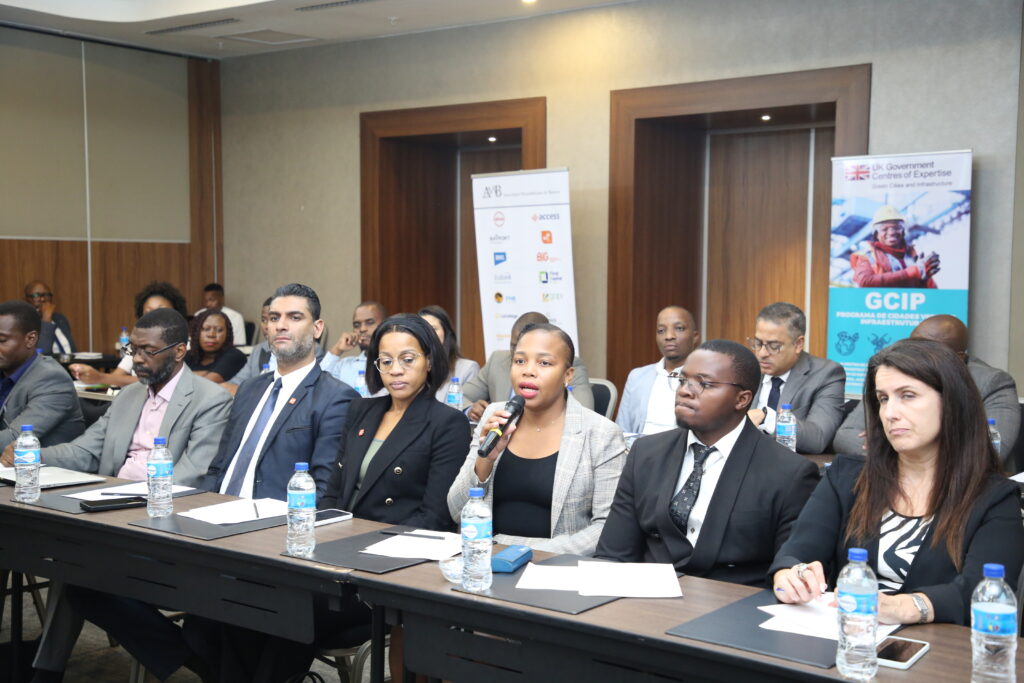- Embedding sustainability into business strategies is crucial for Mozambique’s financial institutions to drive climate resilience.
- Clear taxonomies and ongoing training are needed to assess climate risks and support sustainable finance.
- A training series has been launched designed to enhance the banking sector’s capacity to drive sustainable finance and tackle climate change in Mozambique.

On 2 April, a training series on climate and sustainable finance for the banking sector was launched, an initiative jointly organised by the Green Cities and Infrastructure Programme (GCIP) and the Mozambican Association of Banks and the Mozambican Insurance Association. The objective is to reinforce the role of financial institutions in facilitating Mozambique’s green transition.
More than 70 specialists and managers from the banking, finance and other relevant sectors attended the first workshop held in Maputo. The event underlined the critical importance of sustainable and climate finance for the resilience and long-term growth of Mozambique’s banking system. It aimed to foster dialogue on how climate change impacts the economy and how financial institutions can act as key players in promoting sustainability and mitigating environmental risk.
Luís Aguiar, Vice President of the Mozambican Association of Banks, led the opening session, highlighting the significance of the topic, particularly given Mozambique’s vulnerability to extreme climate events. Representing the British Government, Abdul Afande reaffirmed the UK’s commitment to supporting the Mozambican financial sector as a key driver of transformation. He emphasised the need for coordinated and integrated efforts to address climate-related challenges.
The workshop featured presentations by two renowned experts in sustainable finance:
Tarcísio Mahanhe, Director of Wholesale Banking at Access Bank Mozambique, showcased the bank’s internal sustainability initiatives:
"Sustainability is not an isolated topic nor something handled by a single department. It is an intrinsic part of our business strategy, influencing our products, services, and how we interact with the market."
Dr Sofia Santos, economist and specialist in environmental social governance and climate finance, drew on nearly 30 years of experience in banking and development finance, including collaborations with the World Bank, the UK Foreign, Commonwealth and Development Office, and the Green Climate Fund. She underlined Mozambique’s need for a structured approach:
"Mozambique must develop a clear taxonomy to classify projects as transition, adaptation, or already sustainable. Additionally, it is crucial to integrate these topics into the university system to ensure effective implementation."
Discussions centred on the need for ongoing capacity building, the development of a national taxonomy for sustainable finance and the creation of strategic manuals to support environmental and social risk assessments.
The training programme will continue through to August, with upcoming sessions focusing on key sustainability topics relevant to the financial sector. GCIP will support participating institutions in building internal capabilities to assess climate risks and apply environmental and social criteria in evaluating projects.
This initiative marks a significant step towards embedding climate resilience and sustainability within Mozambique’s financial sector and ensuring that banks are equipped to play a proactive role in the country’s green transition.
The UK’s Green Cities and Infrastructure Programme is tackling climate change and extreme poverty by accelerating the delivery of sustainable green cities and climate-resilient infrastructure.
Published
14/04/25
